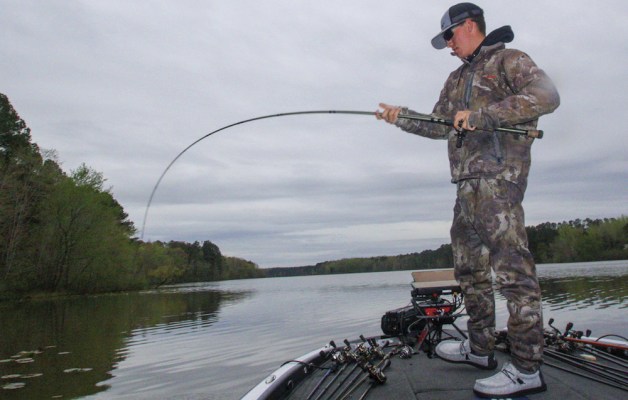We ended last week’s discussion with my thoughts about how hard smallies fight. I made a flat-out statement that smallies fight longer and harder than largemouth or spots. In my mind that’s a fact.
That doesn’t mean, however, that largemouth and spots aren’t fun to catch or that they don’t fight hard. They do. Like one fellow said who posted his thoughts in the Comments section last week, a 10 pound Falcon bass fights hard. That’s also a fact. They deserve respect for their fighting ability.
But anyone who’s brought a 5 or 6 pound brown bass to the boat knows what I’m talking about. That last run at the boat is a trademark of the brown bass. No other bass does it quite like they do. No other bass makes your heart stop and start like they do. No other bass wants you to catch another one like they do.
If that was all there was to the smallmouth culture, however, it wouldn’t be expanding like it is, and the DNR agencies around the country wouldn’t be putting so much time, energy and money into growing them big, protecting their numbers and expanding their range. There’s more to it than the old-fashioned culture.
A big part of it is what we talked about last week. It’s the early myths about them. But it’s also the fact that there aren’t as many of them as there are largemouth. You can catch quality largemouth in a quarter-acre farm pond or on 80,000 acre Falcon International Reservoir. That’s not true with smallies.
I don’t know of any really small, static body of water that supports them. They don’t do well in farm ponds and places like that. The big lakes are different, though. The Great Lakes are an example of that. Look at what comes out of the Detroit River, Lake Michigan and Lake Erie. It’s frightening to think there are so many big brown bass in one place.
Another thing is that they don’t grow as big as largemouth. A 3 or 4 pound largemouth is pretty ordinary in most parts of the country. A 3 or 4 pound smallmouth is a quality fish almost anywhere. (I know that such a fish might not win a big-time tournament but it’s still a quality fish for most of us.)
Brown bass rule! Unless your only goal is to catch as much weight as possible, they’ll do just fine — actually, a lot better than just fine — when it comes to something to chase around and match wits with in the water.
I respect largemouth bass and I respect spotted bass, but I respect and love smallmouth.





